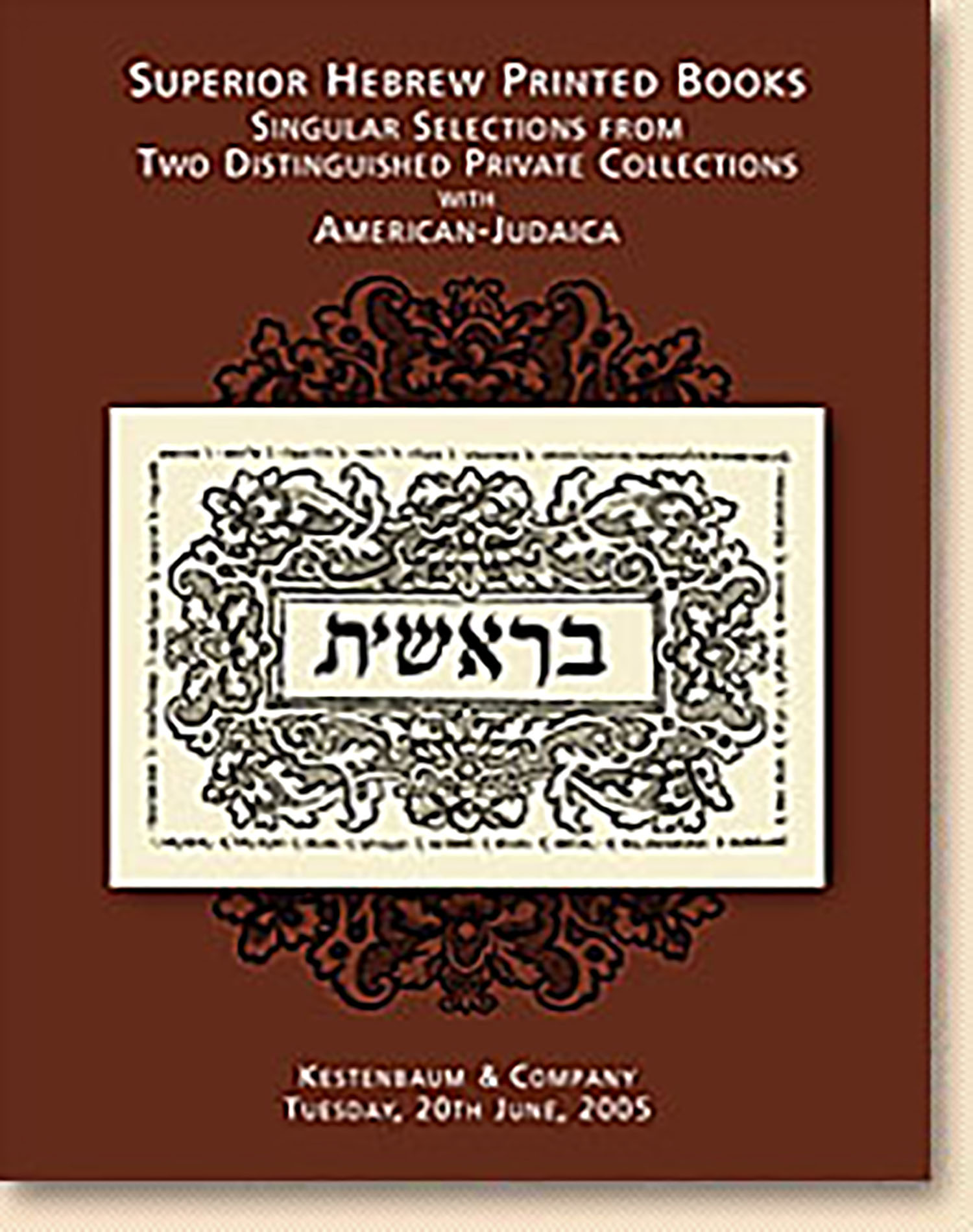Peirush Seder Avodath Yom ha-Kipurim [Kabbalistic Commentary to the Temple Service of the Day of Atonement]

AUCTION 29 |
Monday, June 20th,
2005 at 1:00
Superior Hebrew Printed Books: Singular Selections from Two Distingushed Private Collections with American-Judaica.
Lot 14
CORDOVERO, MOSES
Peirush Seder Avodath Yom ha-Kipurim [Kabbalistic Commentary to the Temple Service of the Day of Atonement]
Venice: Giovanni di Gara 1587
Est: $1,500 - $2,000
PRICE REALIZED $2,750
A TREASURE OF CORDOVERAN KABBALAH.
Rabbi Moses Cordovero (Rama”k) (1522-1570) was the greatest kabbalist of Safed before the arrival of the younger R. Isaac Luria. Cordovero’s works excel in their logical, orderly presentation. This is especially true of his magnum opus Pardes Rimonim (Orchard of Pomegranates). In generations to come, Cordoveran kabbalah would be eclipsed by the exponentially more complex Lurianic kabbalah. Nevertheless, the works of Cordovero, including this slim volume which invests the Temple service of Yom Kippur with rich, mystic significance - remain classics of Jewish mysticism.
The volume concludes with a discussion on the impermissibility of donning tefilin (phylacteries) on Chol ha-Mo’ed, the intermediate days of a festival. The author explains that due to the presence of the neshamah yetherah, possessed during these days, there is no need for an additional spiritual symbol. Cordovero writes “from a kabbalistic perspective, wearing tefilin on Chol ha-Mo’ed is an infraction punishable by death.”
